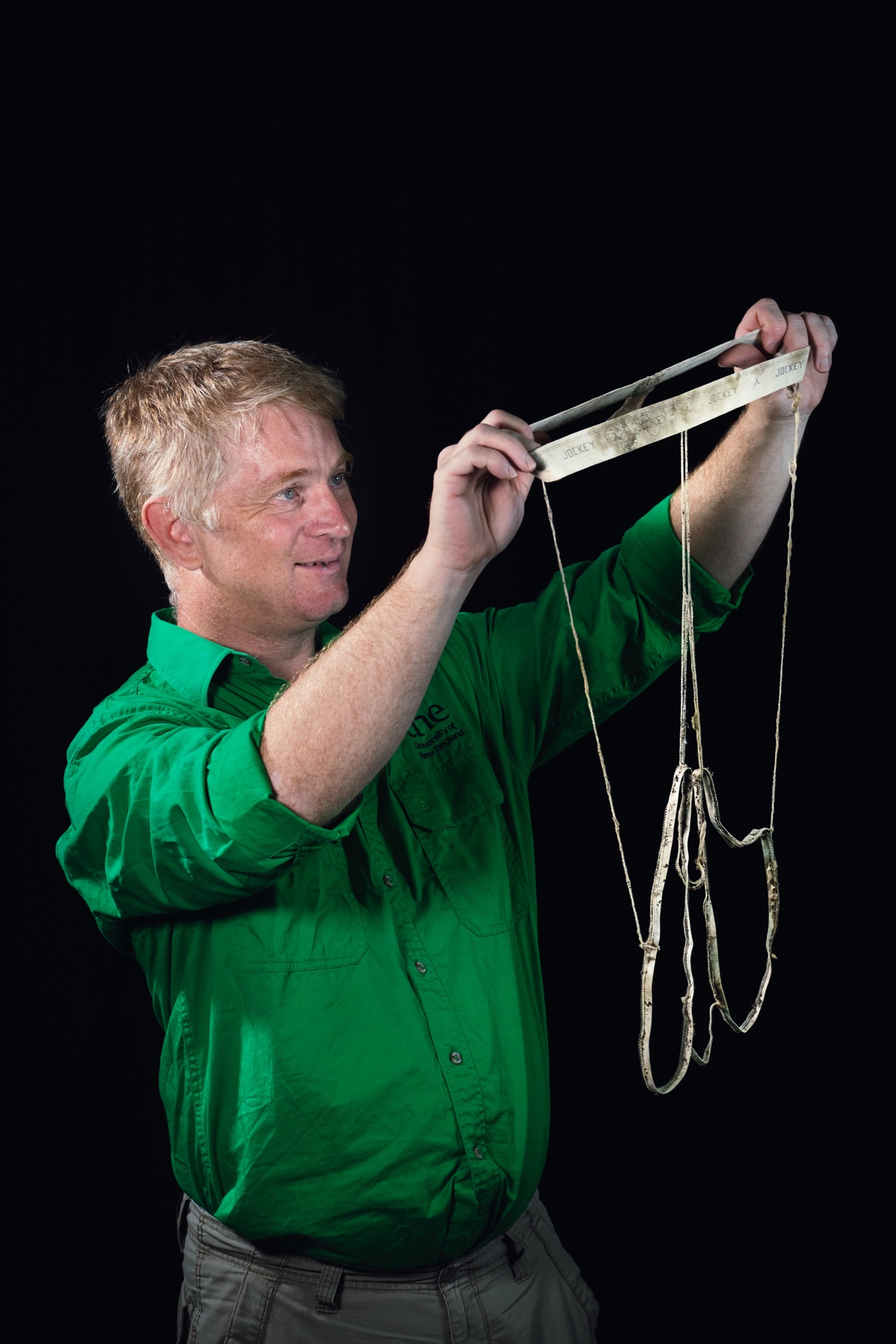Soil is too often overlooked as “mere dirt”, Dr Oliver Knox believes. On the other hand, science-driven perspectives can dissect soil into its components and neglect the larger significance of the relationships between those parts.
UNE's Associate Professor of Soil Systems Biology argues for a more elevated view of soil, as the planet’s largest living ecosystem and the foundation of all human endeavour.
Soils have received new attention over recent years because of their potential to sequester carbon from the atmosphere. Dr Knox has reservations about this narrow focus.
When he addresses the Gwydir Regional Carbon Forum on Wednesday, 3rd August, Dr Knox will not make a specific case for soil carbon. Instead, he will lay out the case for building carbon-rich soil systems.
“I’m not sure how much carbon can be put into the soil, and I’m not sure that should be our focus,” he says. “I feel that we should be looking at ways we can protect and foster our soil ecosystems, rather than focusing on a particular part of them.”
“As long as we focus on systems of practice that have as their objective the protection of this precious and limited resource, then we are moving in the right direction.”
Dr Knox has acquired local fame as the promotor of the “Soil Your Undies” method of visualising soil health. The method is refreshingly simple: participants bury cotton underpants in different soils, then dig them up after eight weeks to assess how much the cotton has broken down.
In a healthy soil, vigorous microbial activity will have cycled much of the cotton back into the soil. Sometimes only the elastic waistband is left. In less healthy soils with lower ability to cycle nutrient, the breakdown is visibly reduced.
Dr Knox’s Soil Your Undies Challenges have been run since 2018, in collaboration with CottonInfo, UNE SMART Farms and UNE Discovery. Through the Challenges, he has graphically demonstrated to more than 500 groups of farmers, schools and Landcare groups the nutrient-cycling power of a healthy living soil. Soil your Undies has also made its way to Africa.
His work on this and other programs have earned Dr Knox nominations for the 2022 CSD Cotton Researcher of the Year and General Jeffrey Soil Health Awards.
Working with soils allows Dr Knox to see the damage done to this foundational resource, “but I also get to see the opportunities we have to fix it”.
“Certainly here in Australia, most agriculture industries have actually taken up that challenge, and are doing their utmost to produce more with less. I don't necessarily think the public either believes that, or is actually aware of those stories, maybe as much as they should be. But there is still more we can do.”
He is heartened by the innovative work being done by individual farmers, some of whom have been encouraged to discuss their work after being prompted by a Soil Your Undies exercise.
“They've understood the problem and adapted their systems to fit a niche challenge within their valleys. Other farmers can then see that this isn’t something pushed on them from a research station miles away – it’s actually a local story of success. I think there's huge power in that.”
Dr Knox doesn’t ever see an end to the need for ongoing farmer innovation, and for the soil science to continually tease out how soils work. But he thinks the greatest current need is engagement, to carry the work of innovators and scientists further into the paddock.
“It's about taking those ideas we believe will work, and being there to support the farmers who want to make those practice changes but aren’t confident of their ability to do so. I know most farmers recognise the importance of their soils, and they are keen to protect them. They just need encouragement.”
When it comes down to it, Dr Knox observes, there are few greater priorities than protecting the soils we have left.
“Let’s not send people to space,” he says. “Let's invest in protecting our soils. That’s where the future of humanity lies.”


